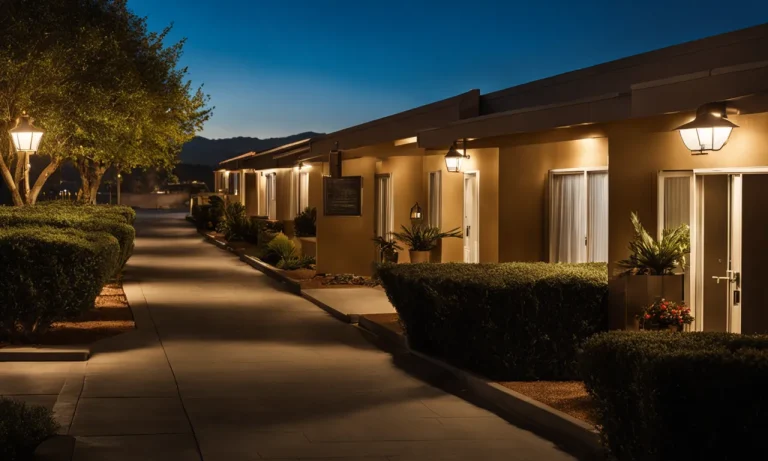Booking a hotel room often comes with one crucial question: ‘How many people can stay in a hotel room?’ This question is especially pertinent when traveling with family or friends, or when organizing group trips.
If you’re short on time, here’s a quick answer to your question:
The number of people that can stay in a hotel room typically depends on the room’s size and the hotel’s policy.
Standard hotel rooms generally accommodate up to two adults. Rooms with two double or queen beds can often accommodate up to four people, usually intended for families with children.
Suites or family rooms are larger and may accommodate more people, up to five or six.
However, it’s important to remember that each hotel has its own policies, and there may be additional charges for extra guests. Always check with the hotel for specific information about their capacity and cost rules. Overcrowding a hotel room can violate safety regulations and the hotel’s policy, leading to potential penalties.
In this article, we’ll explore the factors that determine how many people can stay in a hotel room, the implications of exceeding this limit, and tips for booking rooms for larger groups.
Hotel Room Capacity: Basics and Regulations
When planning a trip, it is important to consider the capacity of hotel rooms. Knowing how many people can comfortably stay in a room is crucial to ensure everyone has a comfortable stay. In this article, we will provide a complete breakdown of hotel room capacity, including the basics, legal and safety regulations, and variations in hotel policies.
Standard Hotel Room Capacities
The capacity of a hotel room can vary depending on the type of room and the hotel’s policies. Most standard hotel rooms are designed to accommodate two to four people. These rooms typically have either one king-sized bed or two double beds. Some hotels also offer rooms with a pull-out sofa bed, which can provide additional sleeping space for one or two people.
It is important to note that exceeding the maximum occupancy of a hotel room can result in additional charges or even being denied entry. This is because hotels must adhere to fire safety regulations and ensure the comfort and safety of all guests.
Legal and Safety Regulations
Hotel room capacities are regulated by local authorities to ensure the safety of guests. These regulations are in place to prevent overcrowding and ensure that there is sufficient space for everyone in case of an emergency. The specific regulations can vary depending on the country and region, so it is important to familiarize yourself with the local laws before booking a hotel room.
In the United States, for example, the International Building Code sets guidelines for hotel room occupancy. According to these guidelines, the minimum area of a hotel room should be 200 square feet for a single occupant and an additional 100 square feet for each additional occupant. However, it’s worth noting that some states or cities may have stricter regulations.
Hotel Policies and Variations
While there are general guidelines and legal regulations for hotel room capacities, individual hotels may have their own policies and variations. Some hotels may offer larger suites or interconnected rooms to accommodate larger groups or families. These rooms may have a higher capacity and provide additional amenities, such as separate living areas or kitchenettes.
It is always recommended to check with the hotel directly or visit their official website to understand their specific policies and room capacities. Additionally, some online travel platforms provide detailed information about room capacities and configurations, making it easier for travelers to find accommodations that meet their specific needs.
Implications of Overcrowding a Hotel Room
Safety Concerns
Overcrowding a hotel room can have serious safety implications. Hotels have strict occupancy limits for a reason – to ensure the safety and well-being of their guests. When too many people are crammed into a single room, it increases the risk of accidents and emergencies.
In the event of a fire or other emergency, overcrowding can impede evacuation efforts and make it difficult for guests to reach safety in a timely manner. It can also put a strain on the hotel’s infrastructure, such as electrical systems and plumbing, increasing the risk of malfunctions or even structural damage.
Legal Consequences
Overcrowding a hotel room is not only unsafe, but it can also have legal consequences. Hotels are required to comply with building codes and regulations, which include occupancy limits. If a hotel is found to be overcrowding its rooms, it can face fines, penalties, and even legal action. In some jurisdictions, overcrowding a hotel room can be considered a violation of fire safety regulations, which carry heavy penalties. It’s important for both guests and hotel owners to be aware of these legal implications and to prioritize safety and compliance.
Impact on Guest Comfort and Experience
Overcrowding a hotel room can significantly impact the comfort and experience of guests. When there are too many people sharing a room, it can lead to cramped quarters, lack of privacy, and increased noise levels. This can make it difficult for guests to relax and enjoy their stay. Additionally, overcrowding can strain the hotel’s amenities and services, such as limited seating in common areas and longer wait times for elevators or breakfast. It’s important for hotels to maintain a comfortable and enjoyable environment for their guests, and overcrowding can undermine these efforts.
Booking for Larger Groups: Tips and Strategies
Planning a trip with a larger group can be an exciting adventure. Whether you are traveling with family, friends, or colleagues, finding suitable accommodations that can comfortably accommodate everyone is crucial. Here are some helpful tips and strategies to consider when booking hotel rooms for larger groups.
Choosing Suite or Connecting Rooms
One option to consider when booking for larger groups is choosing a suite or connecting rooms. Suites are spacious and often come with separate living areas and multiple bedrooms, providing ample space for everyone to relax and unwind. Connecting rooms, on the other hand, have adjoining doors that allow easy access between rooms, making it convenient for group members to stay close to each other. Consider the preferences and needs of your group to determine which option would work best.
Also Read:
Communicating with the Hotel in Advance
Before making your reservation, it is crucial to communicate with the hotel directly to ensure they can accommodate your group’s needs. Discuss the number of people in your group, any specific requirements, and inquire about the availability of larger rooms or connecting options. By communicating in advance, you can avoid any surprises upon arrival and ensure that the hotel can make appropriate arrangements to make your stay comfortable and enjoyable.
Understanding Group Booking Policies
Each hotel may have different policies when it comes to group bookings. It is essential to familiarize yourself with these policies to avoid any misunderstandings or complications. Some hotels may require a minimum number of rooms to be booked, while others may have specific cancellation or payment policies for group reservations. Take the time to carefully read and understand the terms and conditions before finalizing your booking. This will help you make informed decisions and avoid any potential issues during your stay.
Remember, planning ahead and being proactive in your communication with the hotel can greatly enhance your experience when booking for larger groups. By considering options like suites or connecting rooms, communicating with the hotel in advance, and understanding group booking policies, you are well on your way to ensuring a smooth and enjoyable stay for everyone.
Also Read: How Much Discount Can You Get For Group Booking Hotels?
Considerations for Families and Special Needs
Children and Room Capacity
When planning a family vacation, it is important to consider the capacity of hotel rooms. Many hotels have specific policies regarding the number of guests allowed in each room, especially when it comes to children. While some hotels may allow children under a certain age to stay for free or at a reduced rate, others may charge an additional fee for each child above a certain age. It is always a good idea to check with the hotel in advance to ensure that your family can be accommodated comfortably.
Also Read: How to Avoid Extra Person Charges at Hotels?
Accommodations for Special Needs
For individuals with special needs, finding a hotel that can provide suitable accommodations is essential. Many hotels now offer accessible rooms that are designed to meet the needs of guests with disabilities. These rooms typically feature wider doorways, grab bars in the bathroom, and other accessibility features. When booking a hotel room, it is important to specify any special needs or requirements you may have so that the hotel can make the necessary arrangements.
Pet Policies
For those traveling with furry companions, it is important to consider the hotel’s pet policy. While some hotels are pet-friendly and allow guests to bring their pets along, others may have restrictions or additional fees. It is important to check with the hotel in advance to understand their pet policy and any requirements they may have, such as leash rules or weight restrictions. Additionally, it is always a good idea to bring along any necessary documentation for your pet, such as vaccination records, in case they are requested by the hotel.
Also Read:
Conclusion
Understanding how many people can stay in a hotel room is essential for planning successful and hassle-free travel experiences. While the typical capacity is two adults for a standard room, numerous factors, such as room type, hotel policies, and local regulations, can influence this number.
Overcrowding a room can lead to safety issues, legal consequences, and a diminished guest experience. Hence, for larger groups or special needs, strategic planning, effective communication with the hotel, and understanding group booking policies become critical. By being informed and respecting the rules, travelers can enjoy a comfortable, safe, and memorable hotel stay, no matter the size of their party.






